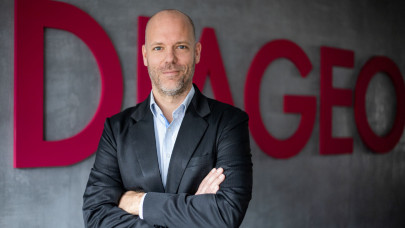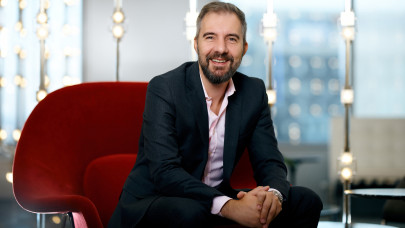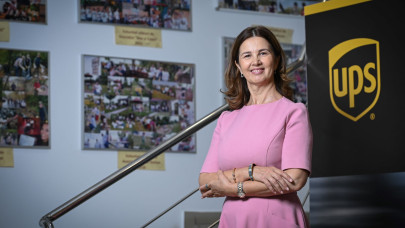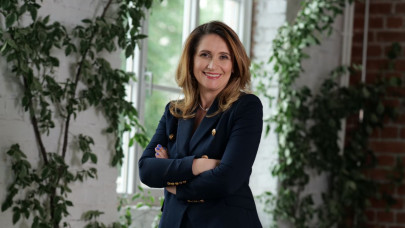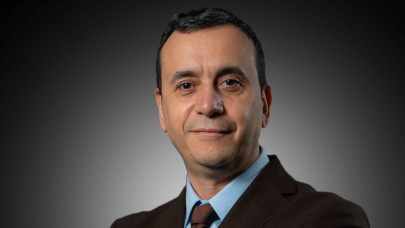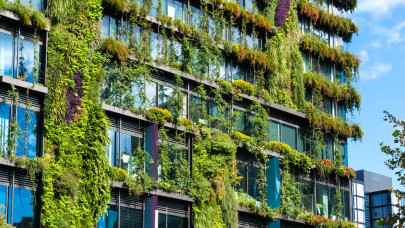What is the role of ESG in BAT`s global strategy?
As a leading multinational company, sustainability is at the heart of our transformation journey as we build A Better Tomorrow™ by reducing the health impact of our business. Our Sustainability Agenda has been refreshed to reflect the changing external environment. Specifically, we are clear that reducing the health impact of our business is our principal focus area, as well as placing a greater emphasis on the importance of addressing climate change and environmental management. At the same time, we remain committed to delivering a positive social impact and ensuring robust corporate governance across the Group.
In environmental management, our key areas of focus include addressing climate change, water management, and the circular economy. Biodiversity, for example, is one of the action areas, as our business now and in the future depends on it. We rely on natural resources like clean water and healthy soils and we are advancing sustainable agriculture through our world-leading leaf science and a strong team of expert field technicians that support the 80,000+ directly contracted farmers and farming communities worldwide.
To deliver a positive social impact in our communities, we develop and engage in various programs across the markets where we operate. We develop campaigns addressing environment awareness and responsible behavior for clean cities and environment protection; we also promote responsible commercial behavior to prevent youth access to tobacco and nicotine products, and we are a long-term sustainable partner of the authorities in their fight against illicit trade. We also support large-scale cultural programs, arts, and music festivals, and also the development of an active and creative artistic community.
What are BAT`s most ambitious sustainability targets?
In 2020, BAT announced ambitious targets for reducing the health impact of its business, reaching environmental protection excellency, generating a positive social impact, and its engagement in correct and responsible commercial practices.
Our approach focuses on the most important issues for our business and stakeholders across four priority areas:
· Addressing climate change risks and opportunities: by 2030, we aim to be carbon neutral across our own operations, and across our value chain by 2050;
· Sustainable water stewardship: we are decreasing water use across our operations with a target to reduce the amount of water withdrawn by 35% by 2025;
· Eliminating waste and applying circular economy principles across our business and product categories: by 2025, we aim for 100% of our packaging to be reusable, recyclable, or compostable; and
· Biodiversity and afforestation: our business now and in the future depends on biodiversity and forest resources – by 2025, we are aiming for net zero deforestation of managed natural forests across our tobacco and paper and pulp-based supply chains and net positive impact on forests in our tobacco supply chain.
BAT has recently presented the company's first annual combined Business and ESG Report*, announcing outstanding results in achieving ambitious environmental, social, and governance (ESG) targets. Through this report, new or updated objectives were announced, such as achieving 30% renewable energy target by 2025 two years early, resulting in revised target of 50% renewable energy by 2030; increasing the initial target of 15% reduction in waste from BAT's operations by 2025, to 25%; expanding the scope of BAT's 100% reusable, recyclable or compostable packaging commitment, beyond just plastic, by 2025 and setting a new target of zero conversion of natural ecosystems in its Tobacco Supply Chain by 2025.
And we are happy to see that BAT's efforts and commitment to high sustainability standards are recognized by prestigious independent institutions. Among them are BAT`s inclusion in the Dow Jones Sustainability Index for 21 consecutive years (BAT is the only tobacco company listed in the prestigious World Index in 2022, being ranked among the top 3% of evaluated companies), an MSCI BBB rating and the CDP A List level.
The company has also been included for a third consecutive year in the FT Europe's Climate Leaders' listing of companies making the most progress in tackling their carbon emissions. BAT was placed in the top 3% of over 4,000 companies evaluated. These achievements recognize BAT's commitment to building A Better Tomorrow™, by reducing the health impact of its business and putting sustainability front and center.
Currently, 24 BAT operation sites are certified by the Alliance for Water Stewardship (AWS). What is BAT`s approach to the water segment and what does this certification mean?
In its first Combined Annual and ESG Report, BAT announced important results in the management of the water used in its production processes in 2022, BAT`s report shows that: 24 own operation sites are certified by the Alliance for Water Stewardship (AWS), including the BAT factory in Ploiesti, Romania, which obtained the AWS certification last year. This is the second largest BAT factory in Europe and the fifth in the group, with a total investment in its development of over €500 million so far and currently employing over 1,000 people.
Efficient water management is vital for the responsible use of resources, both at the individual and organizational levels. BAT is engaged in building A Better Tomorrow™ for consumers and for society, both by fulfilling our business sustainability objectives, towards which we are taking decisive steps, as well as through campaigns related to the responsibility of our individual choices.
In water management, BAT aims by 2025: a 35% reduction in water withdrawn vs the 2017 baseline; 100% of operations sites certified by Alliance for Water Stewardship (AWS) – this globally recognized independent certification will contribute to the validation of the sustainable use of water by BAT; and 30% of water recycled.
In Romania, BAT develops the multi-annual “Choose Responsibly for a Clean City” Campaign. What are the latest developments of this campaign and what other programs BAT develops in sustainability?
In 2019, BAT Romania launched Choose Responsibly for a Clean City Campaign, to raise awareness of the responsibility of individual behavior and the importance of waste management, encouraging smokers to use the special street ashtrays for responsible disposal of cigarette stubs.
In January 2021, we launched in Romania a large–scale take-back scheme for the old version of glo, our tobacco heating device. The campaign is running nationwide in over 250 collection points and to date, over 17,000 devices have been collected for recycling. In 2023, the campaign developed to include a large-scale afforestation component, with a tree that will be planted this autumn for every device returned for recycling.
Environment Day is also an important opportunity to raise awareness of the environmental challenges and things we can all do to contribute to its protection. This year, BAT Romania developed an awareness campaign on the importance of small gestures with significant impact on the environment and our communities, based on a simple insight: before concepts such as responsibility or sustainability, Romanians have always known how to reuse, reduce waste or transform waste packaging into various useful items. World Environment Day was a great opportunity to remember the good habits of recycling and reuse. The circular economy is a key principle of the BAT approach for A Better Tomorrow, reducing the amount of plastic and waste, recycling and reusing materials, and developing products based on sustainability principles.
BAT is engaged in building A Better Tomorrow including through its own employees. What are the ways of engaging BAT`s employees in Romania in sustainability programs?
We have, indeed, a rich calendar of events and campaigns dedicated to our employees, whose involvement and contribution are essential in BAT's journey towards A Better Tomorrow™.
March 2023 was Recycling Month at BAT Romania. As part of our internal campaign “From ReUsed to ReLoved” carried out in partnership with the Romanian Red Cross - Sector 6 Branch, the employees of the 3 BAT entities active in Romania donated 1,400 kg of clothes, for reuse by needy families, or recycling in the case of damaged items.
We also develop large–scale afforestation campaigns, where our employees actively contribute and participate, not only to give something back together to the communities where we work and live but also to foster our team spirit and common efforts. This year, close to 1,500 ash trees were planted by BAT Romania employees in Buzau and Prahova counties. This is proof of the small, continuous gestures that build up characters and contribute to A Better Tomorrow™.
Also at BAT, we celebrate and embrace cultural diversity, as a key element of our ethos. We are close to 20 nationalities in our BAT headquarters in Romania, which creates a rich and diverse cultural environment that can only help us grow and become stronger together. We are proud to be a diverse global organization that encourages our people to value everyone's differences and we take every chance to say a big Thank You! to our colleagues for the cultural difference everyone brings.



